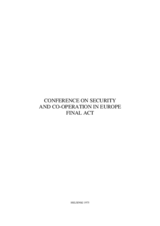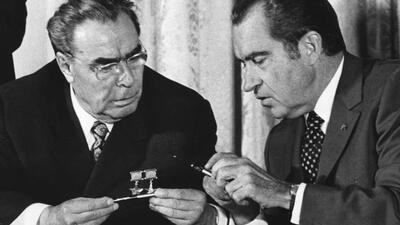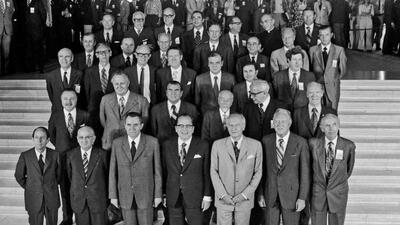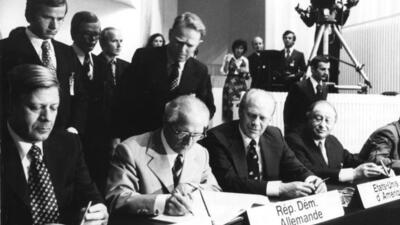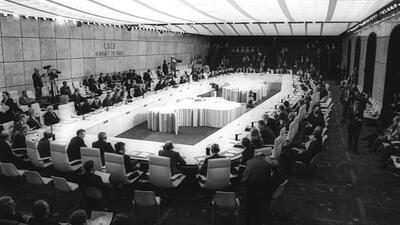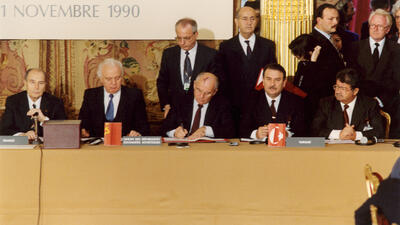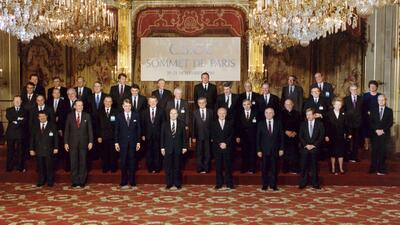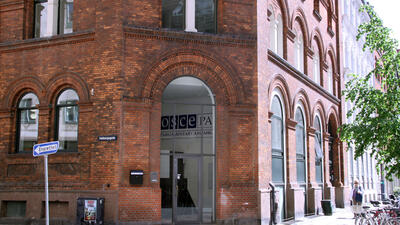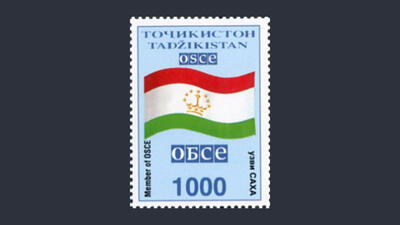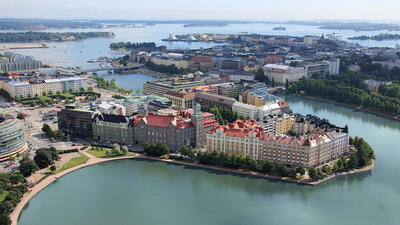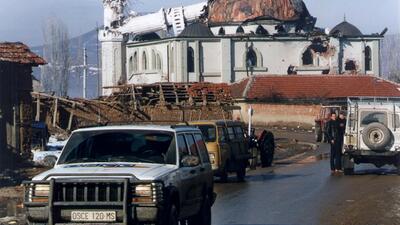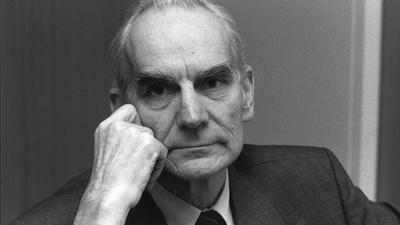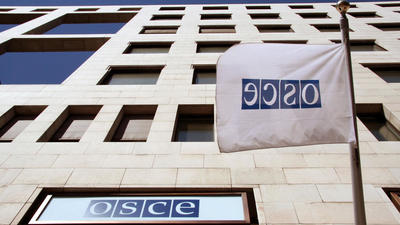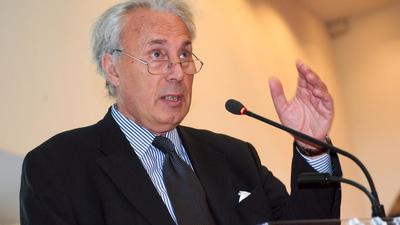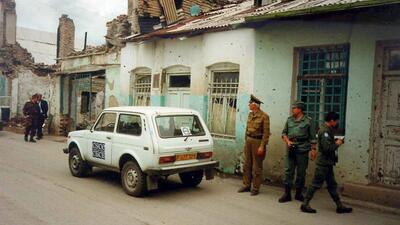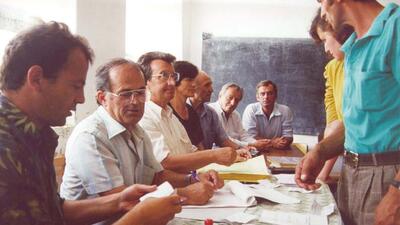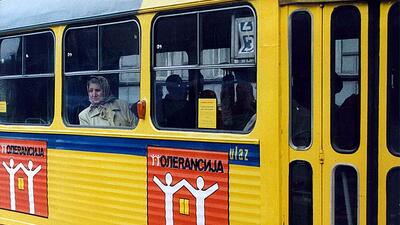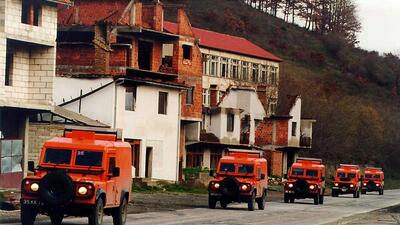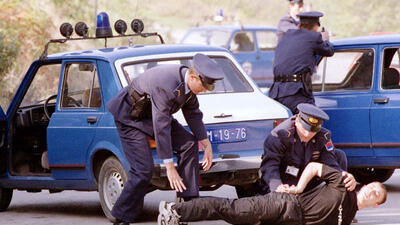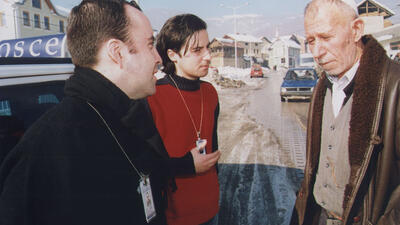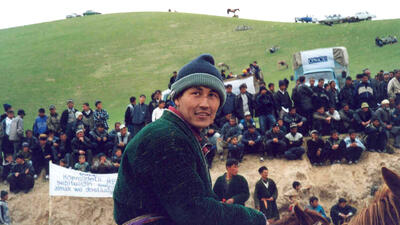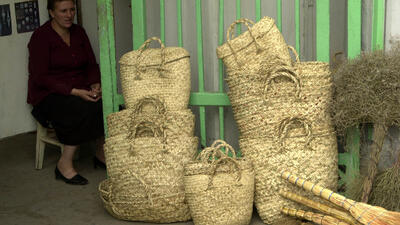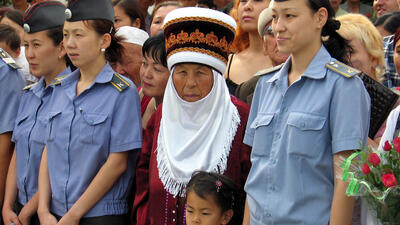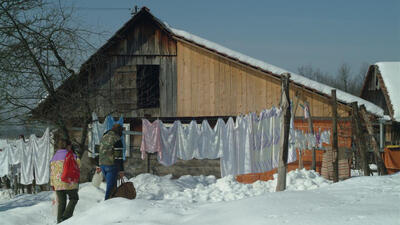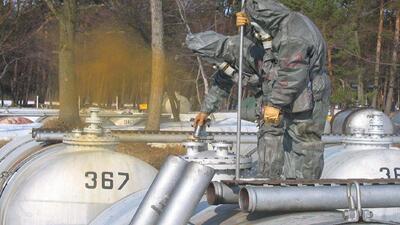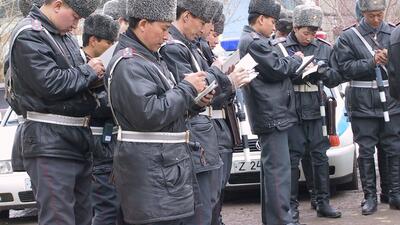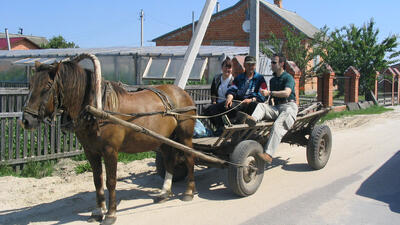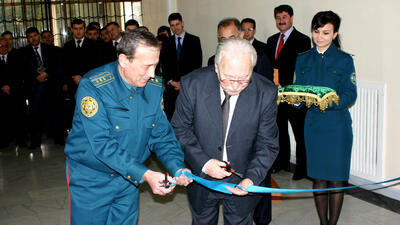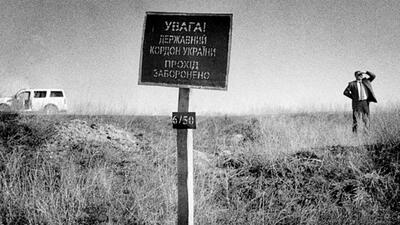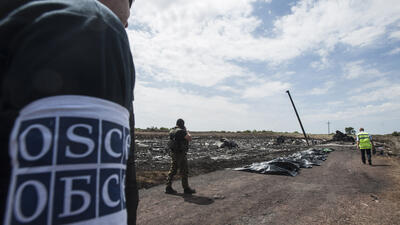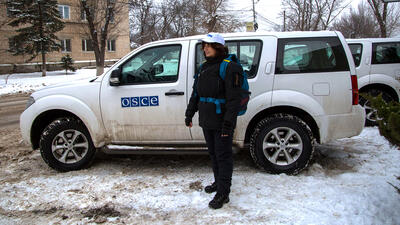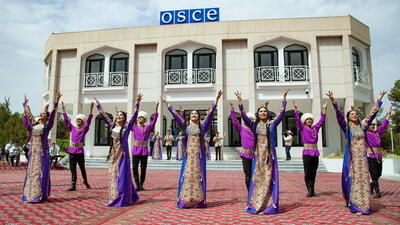-
Our work
-
Fields of work
- Arms control
- Border management
- Combating trafficking in human beings
- Conflict prevention and resolution
- Countering terrorism
- Cyber/ICT Security
- Democratization
- Economic activities
- Education
- Elections
- Environmental activities
- Gender equality
- Good governance
- Human rights
- Media freedom and development
- Migration
- National minority issues
- Policing
- Reform and co-operation in the security sector
- Roma and Sinti
- Rule of law
- Tolerance and non-discrimination
- Youth
- Field operations
- Projects
-
Meetings and conferences
- Summit meetings
- Review Conferences
- Ministerial Council meetings
- Plenary meetings of the Permanent Council
- Plenary Meetings of the Forum for Security Co-operation
- Security Review Conferences
- Annual Implementation Assessment Meetings
- Economic and Environmental Forum
- Economic and Environmental Dimension Implementation Meetings
- Human rights meetings
- Media conferences
- Cyber/ICT security conferences
- Conference of the Alliance against Trafficking in Persons
- Gender equality conferences
- Annual OSCE Mediterranean conferences
- Annual OSCE Asian conferences
- Partnerships
-
Fields of work
-
Countries
- All
-
Participating States
- Albania
- Andorra
- Armenia
- Austria
- Azerbaijan
- Belgium
- Belarus
- Bosnia and Herzegovina
- Bulgaria
- Canada
- Croatia
- Cyprus
- Czechia
- Denmark
- Estonia
- Finland
- France
- Georgia
- Germany
- Greece
- Holy See
- Hungary
- Iceland
- Ireland
- Italy
- Kazakhstan
- Kyrgyzstan
- Latvia
- Liechtenstein
- Lithuania
- Luxembourg
- Malta
- Moldova
- Monaco
- Mongolia
- Montenegro
- The Netherlands
- North Macedonia
- Norway
- Poland
- Portugal
- Romania
- Russian Federation
- San Marino
- Serbia
- Slovakia
- Slovenia
- Spain
- Sweden
- Switzerland – OSCE Chairpersonship 2026
- Tajikistan
- Türkiye
- Turkmenistan
- Ukraine
- United Kingdom
- United States of America
- Uzbekistan
- Asian Partners for Co-operation
- Mediterranean Partners for Co-operation
-
Structures and institutions
- Chairpersonship
-
Secretariat
- Secretary General
- Office of the Secretary General
- Conflict Prevention Centre
- Transnational Threats Department
- Office of the Special Representative and Co-ordinator for Combating Trafficking in Human Beings
- Office of the Co-ordinator of OSCE Economic and Environmental Activities
- Gender Issues Programme
- Opportunities for Youth
- Department of Human Resources
- Department of Management and Finance
- Office of Internal Oversight
- Documentation Centre in Prague
- Institutions
-
Field operations
- Presence in Albania
- Centre in Ashgabat
- Programme Office in Astana
- Programme Office in Bishkek
- Mission to Bosnia and Herzegovina
- Programme Office in Dushanbe
- Mission in Kosovo
- Mission to Moldova
- Mission to Montenegro
- Mission to Serbia
- Mission to Skopje
- Project Co-ordinator in Uzbekistan
- Closed field activities
- Parliamentary Assembly
- Court of Conciliation and Arbitration
- Organizational structure
- About us
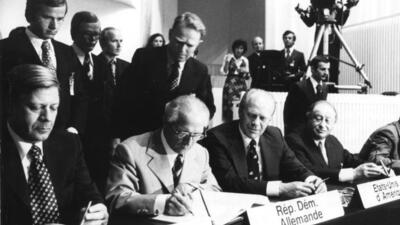
Our history
The OSCE took its first steps as a multilateral forum for dialogue and negotiation between East and West.
The Helsinki Process
The OSCE’s origins go back to the early 1970s, a time when the political atmosphere between East and West became more relaxed. In this period of détentedétente
The relaxation of strained relations, especially political ones., states from both sides began to discuss the idea of establishing a multilateral forum for dialogue and negotiation, which over time developed into the Conference on Security and Co-operation in Europe (CSCE).
The CSCE was formally established in Helsinki on 3 July 1973 and was attended by 35 States. After two years of negotiations, taking place in Helsinki and Geneva, the States reached an agreement to put down a framework of principles and commitments for all participants—the Helsinki Final Act, formally signed on 1 August 1975.

Standing ovations at the first CSCECSCE
Conference on Security and Co-operation in Europe Summit after the signing of the Helsinki Accords, which laid the foundations for the work of the CSCE/OSCE. Helsinki, 1 August 1975.
A cornerstone of European security
The Helsinki Final Act was a bold move forward for European security and encouraged a wave of grassroots activism across Europe, with citizens starting to hold their governments true to their promises. Some of these Helsinki groups are still around today, and many of the others joined together to form what is now known as Human Rights Watch, an internationally renowned NGONGO
non-governmental organization.
A number of key commitments on politico-military, economic and environmental, and human rights issues, were contained in the Helsinki Final Act that became central to the so-called 'Helsinki process'. It also established ten fundamental principles (the 'Decalogue') governing the behaviour of States towards their citizens, as well as towards each other.
The Helsinki Final Act (1975) is considered the Organization's founding document.
The Decalogue
As part of the Helsinki dialogue, all CSCE participating States committed themselves to ten fundamental principles in the Declaration on Principles Guiding Relations between Participating States, under basket one of the Helsinki Final Act.
The Declaration notes that all ten principles “are of primary significance and that, accordingly, they will be equally and unreservedly applied, each of them being interpreted taking into account the others.
Milestones
The Charter of Paris for a New Europe
Until 1990, the CSCE functioned mainly as a series of meetings and conferences that built on and extended the participating States' commitments, while periodically reviewing their implementation. However, with the end of the Cold War, the Paris Summit of November 1990 set the CSCE on a new course.
In the Charter of Paris for a New Europe, the CSCE was called upon to play its part in managing the historic change taking place in Europe and responding to the new challenges of the post-Cold War period, which led to its acquiring permanent institutions and operational capabilities.
“Ours is a time for fulfilling the hopes and expectations our peoples have cherished for decades: steadfast commitment to democracy based on human rights and fundamental freedoms; prosperity through economic liberty and social justice; and equal security for all our countries.”
As part of the institutionalization process resulting from the Paris Charter, the CSCE was renamed by a decision of the Budapest Summit of Heads of State or Government in December 1994, formally now known as Organization for Security and Co-operation in Europe (OSCE).
Activities in the field
A distinctive feature of the OSCE is its presence in the field. The field operations give the Organization not only an active presence in countries that require assistance, they are also the vehicle through which political decisions are translated into action. Their work addresses all phases of the conflict cycle: early warning, preventive diplomacy, conflict management and post-conflict rehabilitation.
The first field operations to be deployed were the OSCE Missions of Long Duration in Kosovo, Sandjak and Vojvodina, starting their work on 8 September 1992. These first field offices led to an expansion of OSCE operations in other parts of South-Eastern Europe and, later, Eastern Europe, the Baltic States, Central Asia and Southern Caucasus.
Although no two mandates are the same, generally speaking the missions’ purposes are twofold: to facilitate the political processes that are intended to prevent or settle conflicts, and to ensure that the OSCE community is kept informed of developments in the countries where field operations are present. They are established by a decision of the Permanent Council, with the agreement of the host country.
